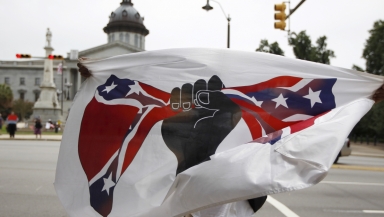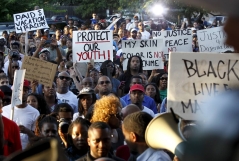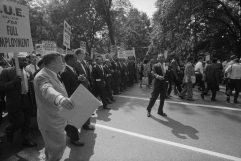The overwhelming majority of evangelical Christians in the US believe that churches have an important role to play in racial reconciliation, a new study has found.

According to the Barna Group, even those outside the church believe it can help combat racial divisions.
More than half (53 per cent) of people with no faith agreed strongly or somewhat that Christian churches play an important role in racial reconciliation.
Almost all evangelicals (94 per cent) said the same, as did the majority of Millennials (66 per cent), Generation Xers (69 per cent), Boomers (79 per cent) and Elders (84 per cent).
In total, 73 per cent of all adults asked said the church had an important role.
However, 17 per cent of black people said that Christian churches are actually part of the problem when it comes to racism.
One in 10 of all adults agreed, including nine per cent of white people.
"Our research confirms the fear that the church (or the people in it) may be part of the problem in the hard work of racial reconciliation," said Brooke Hempell, vice president of research at Barna Group.
"If you're a white, evangelical, Republican, you are less likely to think race is a problem, but more likely to think you are a victim of reverse racism. You are also less convinced that people of color are socially disadvantaged. Yet these same groups believe the church plays an important role in reconciliation. This dilemma demonstrates that those supposedly most equipped for reconciliation do not see the need for it."
Hempell said white evangelical Christians "demonstrate a blindness to the struggle of their African American brothers and sisters.
"This is a dangerous reality for the modern church. Jesus and his disciples actively sought to affirm and restore the marginalized and obliterate divisions between groups of people. Yet, our churches and ministries are still some of the most ethnically segregated institutions in the country," she added.
"By failing to recognize the disadvantages that people of color face – and the inherent privileges that come from growing up in a 'majority culture' – we perpetuate the racial divisions, inequalities and injustices that prevent African American communities from thriving.
"Research has shown that being cognizant of our biases leads to change in biased behavior. If white evangelical Christians genuinely care for the wellbeing of their African American brothers and sisters, the first step they must take is being honest about their own biases. History – and Jesus' example – has shown that reconciliation comes from stepping out of our place of comfort and actively pursuing healing for those in need. We must do the same, if we really believe all lives matter."
















